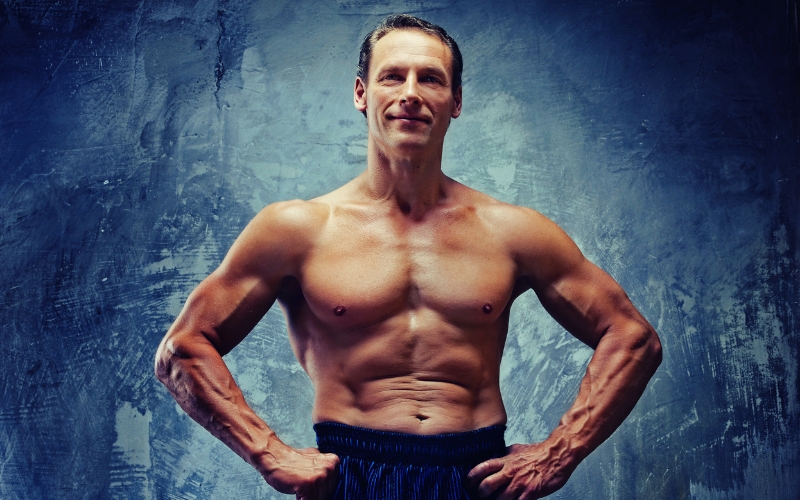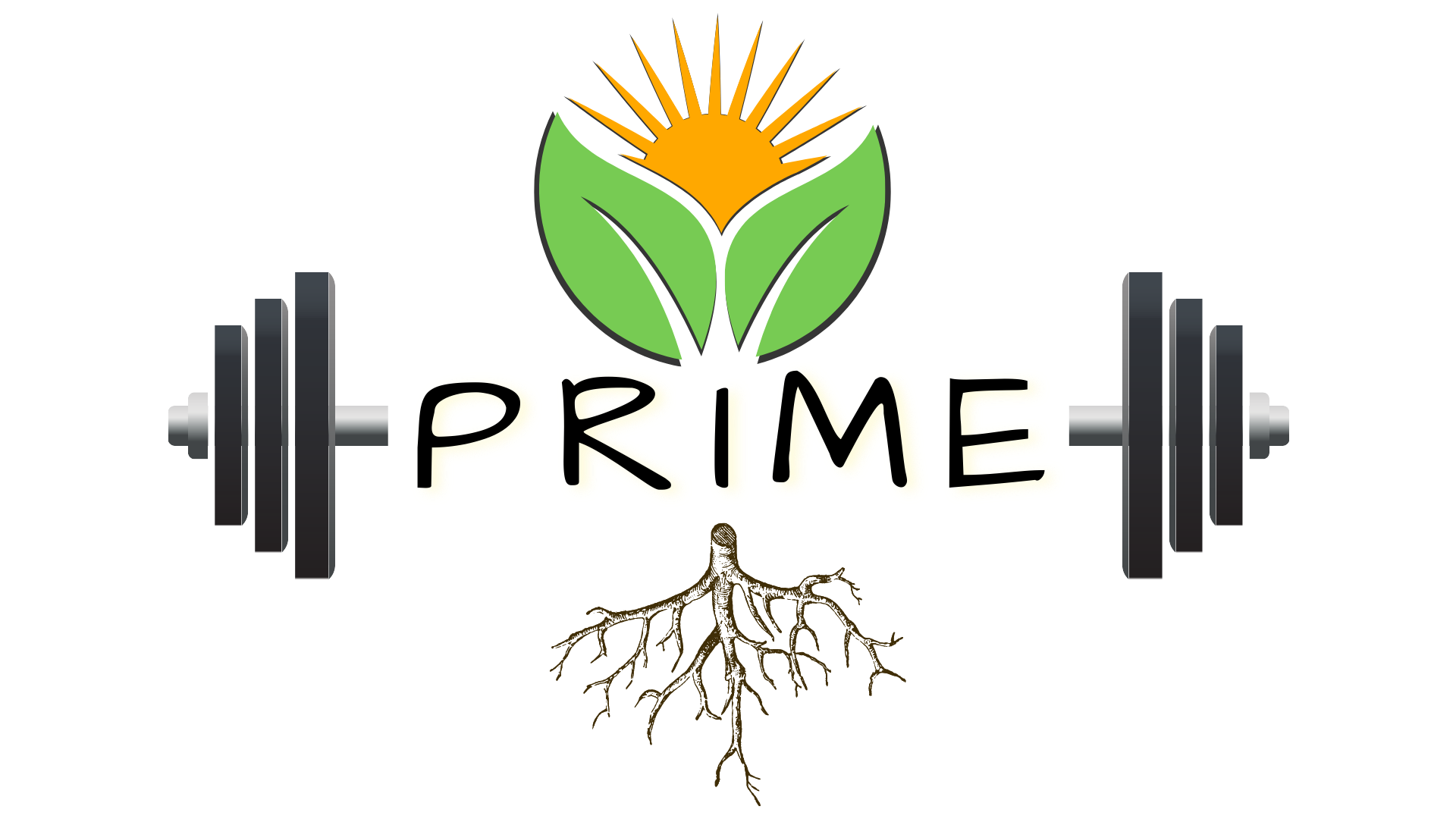It’s no secret that as we age, it becomes harder to build muscle. Right around my early 30s, a couple things changed: my strength went down, and the time it takes to recover between workouts went up. Maybe you didn’t start lifting weights until you were well past 30. You found yourself at 38 wanting to get in shape and change your life. I’m here to tell you that building muscle after 30 is possible.
Whether you’re trying to lose weight, build muscle, or do both at the same time, there are a few habits that will help you get in shape well into your 30s and beyond. I’m not saying it will happen overnight. But if you can maintain these habits and practice patience, it will pay off.
How Does Age Affect Muscle Building?
First, it’s important to understand how age affects muscle building. Sarcopenia is the process of losing muscle as we get older. Starting from around the age of 30, it’s estimated that men can lose anywhere from 3-5% of their muscle mass every 10 years. That’s about four to ten pounds per decade, depending on how much muscle you currently have.
I don’t know about you, but I’m not just going to sit back and let sarcopenia run its course. Since you’re reading this, I’m guessing you feel the same way. We’ve put in too much work to let this muscle waste away.
The good news is that we can delay muscle loss, or even better, build new muscle during our 30s and beyond. To make this happen, we need to do everything in our power to maximize our testosterone naturally.

Testosterone and Muscle Protein Synthesis
Testosterone is vital to muscle protein synthesis. This is the process where your body builds new muscle tissue with amino acids from the protein that you eat. You stimulate protein synthesis by overloading your muscles (lifting weights), which sends a signal to your brain that you must adapt in order to handle the added stress. In response, your body repairs the damaged muscle tissue to make it bigger and stronger than it was before.
How Muscle Memory Affects Building Muscle After 30
Something else that affects the process of building muscle after 30 is how much muscle you’ve already built in your teens and 20s. There’s a difference between building muscle for the first time, and re-building muscle that you already had. Building muscle for the first time takes more time and effort than re-building muscle. This phenomenon is known as muscle memory.
What is Muscle Memory?
Inside every muscle cell, there’s a nucleus. Think of the nucleus as the brain of the cell.
The nucleus “remembers” how to get bigger and stronger.
Because of this, it doesn’t have to “learn” how to do it again, but rather just needs a bit of practice.

When I was a kid, I was really good at playing the piano. I haven’t touched a piano in a long time. But if I started practicing again, I would pick it up a lot quicker than someone who has never played piano before.
It’s the same way with building muscle.
If I took 3 months off from the gym, I would lose muscle. But if I started lifting again, along with eating meal prep and practicing the right habits, I would gain that muscle back pretty quickly.
Compare that to someone who has never trained before. All else being equal, it would take them significantly longer to build 10 pounds of muscle.
The only exception is when you first start weight training, you might get some quick “newbie gains” before the growth slows down.
If you’re thinking to yourself, “Muscle memory doesn’t apply to me, because I’m already 35 and I just started”. Fear not! There are things you can start doing right now to get on track.
Let’s look at some of the most important habits for building muscle naturally after 30.

Optimize Sleep & Reduce Stress
The first thing you want to do is optimize your sleep habits and reduce stress. These two go hand in hand. When you get better sleep, it lowers your stress. When you manage stress effectively, you get better sleep. Sleep quality affects your health in many different ways, but for now, let’s just focus on building muscle.
How Stress Inhibits Muscle Growth
Poor sleep quality directly causes stress, and stress elevates cortisol, which is a catabolic hormone.
Catabolic means “to break down”, which is the opposite of anabolic, or “to build up”.
In order to gain and maintain muscle, you need to stay in an anabolic state more often than not.

How Sleep Benefits Muscle Growth
In addition to reducing stress and cortisol, better sleep helps to repair and rebuild damaged muscles from training.
During deep sleep, the pituitary gland releases high amounts of HGH, or human growth hormone. HGH and testosterone are essential for the recovery of muscles, tendons, and ligaments among other things.
Over the age of 30, your natural hormone levels are not as high as they were in your teens and 20s. When you’re constantly training hard, your body takes a beating over and over again. This takes a toll on your aging physique.
That’s why it’s especially important to focus on better sleep habits and reduce stress whenever possible.

Rest & Recovery Are Crucial For Building Muscle After 30
Despite the importance of limiting stress, the reality is that men over 30 have busy and stressful lives. Maybe you have a family to take care of, a demanding career or business, an active social life, or all of the above. When you try to fit weight training into a busy schedule, you tax your mind and body even more than it already is.
This is when you should ask yourself how important your fitness goals are. In order to build muscle after the age of 30, it’s going to require sacrifice.
Even if you’re only going to the gym three days a week, you must prioritize rest and recovery during the other four days. What you do in the gym definitely matters, but it’s what you do outside of the gym that can make or break you.
Whether it’s staying in more often, switching up your daily routine, or devoting more time to self care. I don’t know what your schedule looks like, so this is something you must figure out for yourself.

Adjust Your Training Volume and Diet
Next thing you want to consider doing is adjust your training volume and diet to suit your older age. That might sound depressing, but it’s necessary to talk about.
If you’re already over 30 and started your fitness journey recently, this may not apply to you as much since you’re new to the gym. But for the guys that have been working out for awhile, you’ll start to notice that you can’t lift, or eat like how you used to.
Maybe you started getting minor injuries here and there that won’t go away. Or you can’t lift the same weights as back in the day. Maybe your metabolism is a bit slower now, so you can’t eat the same cheat meals.
If you’re in your 30s or 40s, adjusting your training volume and your diet will help you maintain longevity and continue seeing progress.
However, it’s also necessary to train with intensity and sufficient volume. This means doing enough reps and sets, but also putting in close to maximum effort every workout.
One of the fundamental principles of muscle building is progressive overload. It means constantly training harder and trying to beat your last workout, whether it’s increasing time under tension, doing more sets/reps in each workout, or lifting heavier.

Difference Between Building Muscle in Your 30s vs. 20s
I’ve been lifting since my late teens, all throughout my 20s, and up until now. I remember when I was 32, I suddenly became aware of the fact that I’m not the gym-bro I was when I was 28. In some ways, that’s a good thing. But mostly it was just depressing.
I had to face the reality that my body doesn’t bounce back like how it did back in the day. 5 days a week of intense weight training used to be the minimum. I had energy to stay up late, run around town, not take care of my body, and I still made all kinds of gains. Now, 5 days a week is a stretch and 6 days a week is out of the question.
Chasing a PR is no longer feasible for me. My joints and tendons can’t handle it. I’m not putting down as much food as I once did. The reason I bring this up is not to bring you down, but rather encourage you guys that want to stay natural.
There will come a point when you realize that your body cannot handle the same training and bad habits you got away with in your 20s. Despite this, just know that it’s going to be alright. You can still get in great shape and live with purpose. Pivot your strategy to maximize longevity. Focus more on health rather than pure bodybuilding.
Stay Natural vs. HRT
I’m not here to tell a grown man what to do with his life. So if you’re 35+ and want to see your doctor about starting HRT, that’s your right to do so. At MindBodyPrime, I have always promoted staying natural. However, I realize that at a certain point, the benefits of HRT may outweigh the costs. It’s up to you to decide what’s best for your future.

Explore Different Supplements
If you’ve made the wise decision to stay natural for as long as possible, there are supplements that can help you build muscle and get in shape. Some of them can also improve your health and wellness beyond the gym. Although supplements should not be the main focus, they can provide vitamins, minerals, and compounds that you may be lacking.
Disclaimer: Some supplements are not FDA approved. Always talk with your doctor before starting any new supplement.
Daily Supplements for Building Muscle After 30
My daily supplements include:
-
-
-
-
-
-
-
-
-
- Zinc
- Magnesium
- Fish Oil
- Vitamin D
- Vitamin C
- Ashwagandha
-
-
-
-
-
-
-
-
For those who are 30+, I recommend looking into supplements that can boost your testosterone. Zinc, Magnesium, and Vitamin D are three of the best vitamins and minerals for healthy testosterone levels.
In addition, Ashwagandha is an herbal supplement that has been clinically shown to improve testosterone, reduce stress, improve sleep quality, and give the user youthful energy. Read more about the science behind Ashwagandha benefits for men.
I was also taking Tongkat Ali for a few months, then I decided to take a break from it. No reason in particular, I just don’t want to take too many compounds at once. I’m planning to start again in the near future.
Performance Supplements for Building Muscle After 30
The performance supplements I use on training days include:
-
-
-
-
-
-
-
-
-
- Stimulant-free pre workout
- Whey Protein
-
-
-
-
-
-
-
-
I used creatine monohydrate for a number of years. However, I’m not currently using it because I don’t want to hold excess water in my muscles. At this phase of my life, I value being lean more than being big and strong. But for strength gains and muscle size, creatine does help.

Conclusion
To conclude, I want to emphasize that your age is not an excuse to neglect your body. Not that 30 is old by any means, but when we’re talking about building muscle naturally, it does get a little bit harder. Even so, there are habits you can start right now that will help you become a healthier, stronger, and more attractive version of yourself. If you’re new to the gym and want to build your body from the ground up, feel free to reach out to me.
